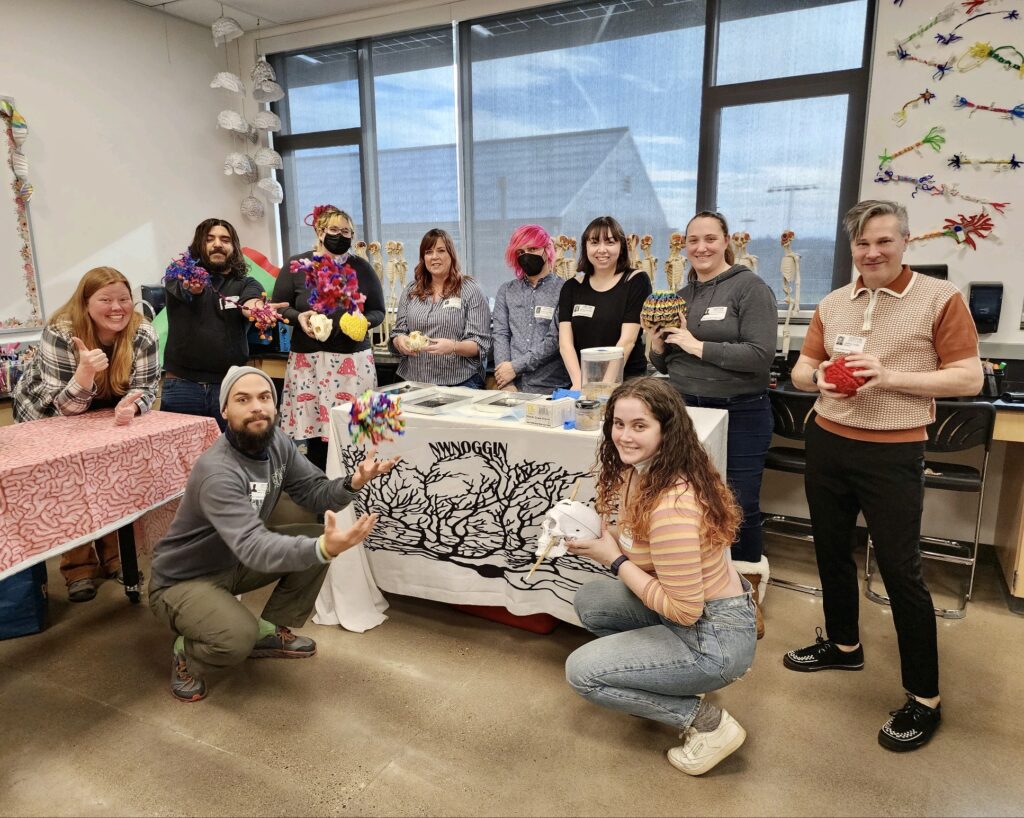Post by Kristin Preston, Northwest Noggin outreach participant and undergraduate in Psychology pursuing an Interdisciplinary Neuroscience minor at Portland State University.
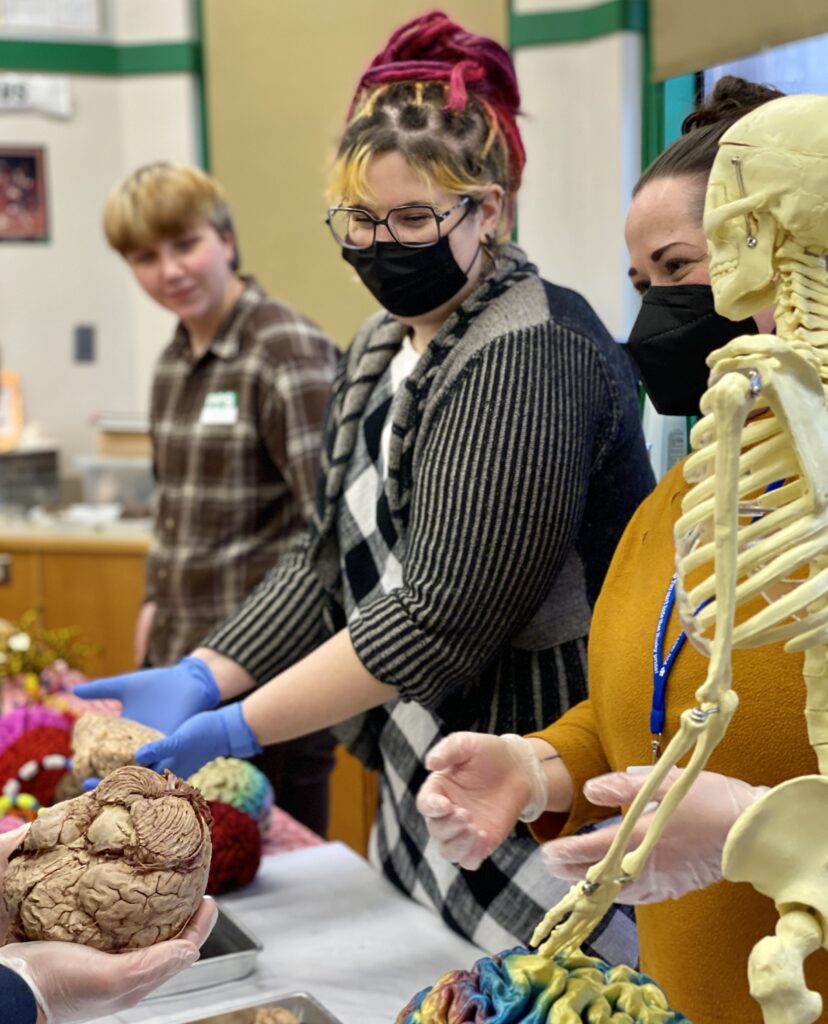
“Let food be thy medicine and let medicine be thy food.”
— Hippocrates
“All disease begins in the gut.”
As we move away from the darker, colder winter season, and into longer days of sunshine and warmer weather, many of us turn our attention to gardening, compost and worm bins. The more diverse the scraps we have in our compost, the more variety we can expect of the microscopic helpers in our garden ecosystem.
Did you know that you have a worm bin in your own intestines to nurture, too?
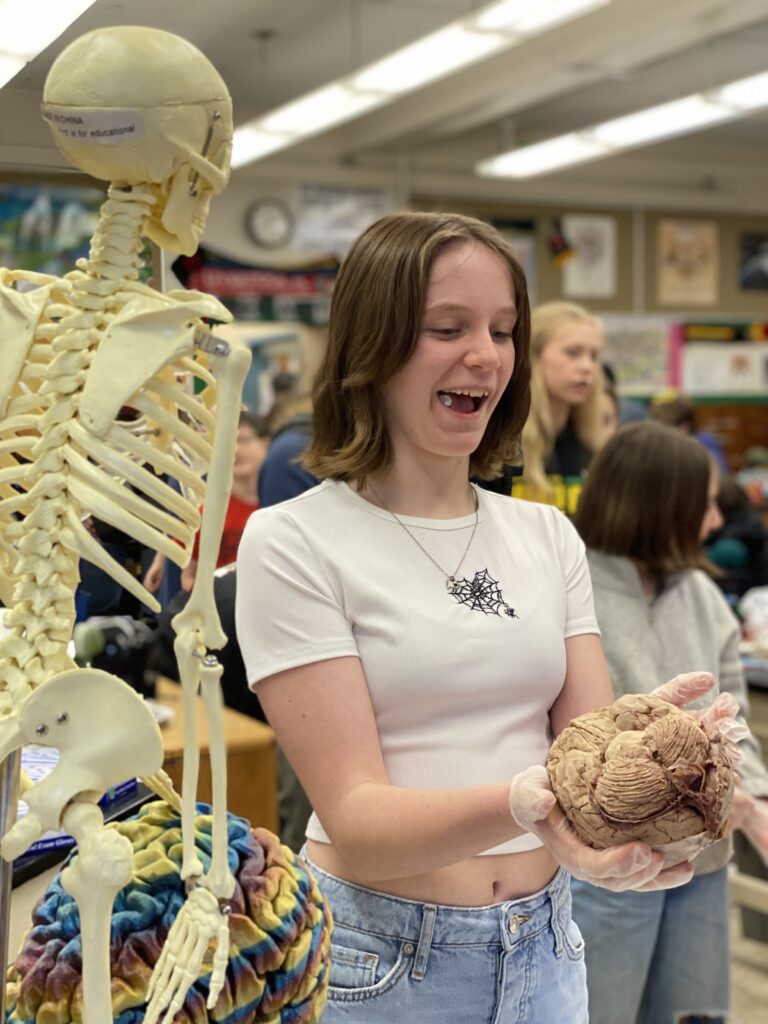
LEARN MORE: Does Soil Contribute to the Human Gut Microbiome?
The Microbiome: 100 trillion organisms!
Just as the soil in your garden has a microbiome, we have our own, too, containing a diverse community of microbes, yeast, bacteria, and fungi… no actual earthworms, however (we hope!). These tiny creatures are largely responsible for our health and wellness as 70% of our immune system is based in the gut. It also generates most of the serotonin (the neurotransmitter responsible for mood, sleep, and digestion) in our bodies.
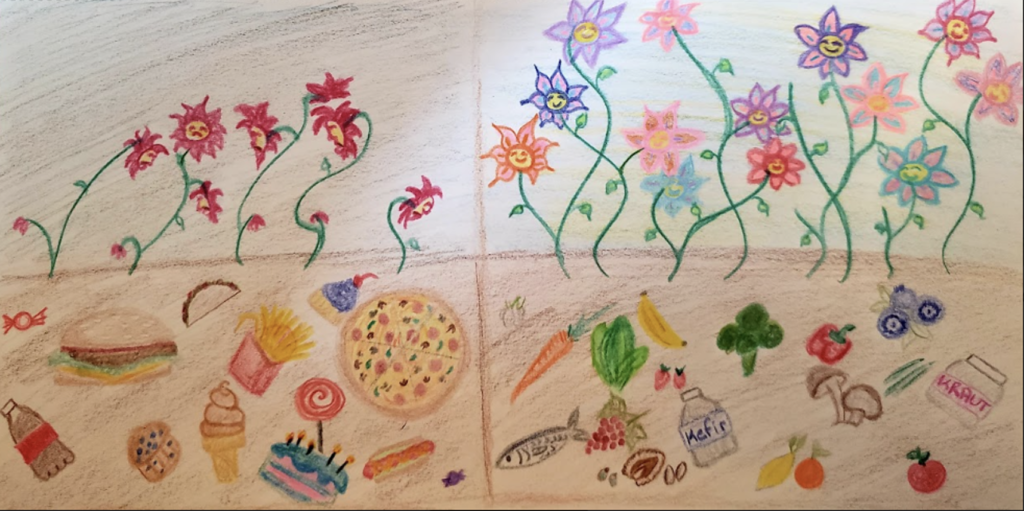
An astonishing fact: there are THREE times as many microorganisms living in and on us than cells with our own DNA! We each have about 37 trillion cells in our body; including close to 86 billion neurons if you’re an adult. But we also have 100 trillion additional microorganisms. These really are MICRO though; i.e., very small. We get a majority from other people (including our moms on our way out).
The human genome, the set of genetic instructions we inherit from our parents, includes about 20,000 genes. In contrast, the collective genomes of all the bacteria, fungi and viruses in a single individual’s microbiome are thought to include as many as 8,000,000 more genes! So there are up to 300 non-human genes for each human gene. Since genes build proteins to carry out important cellular tasks, the microbiome provides each of us with an enormous reservoir of genetic capability that does not have to be encoded by the human genome itself.
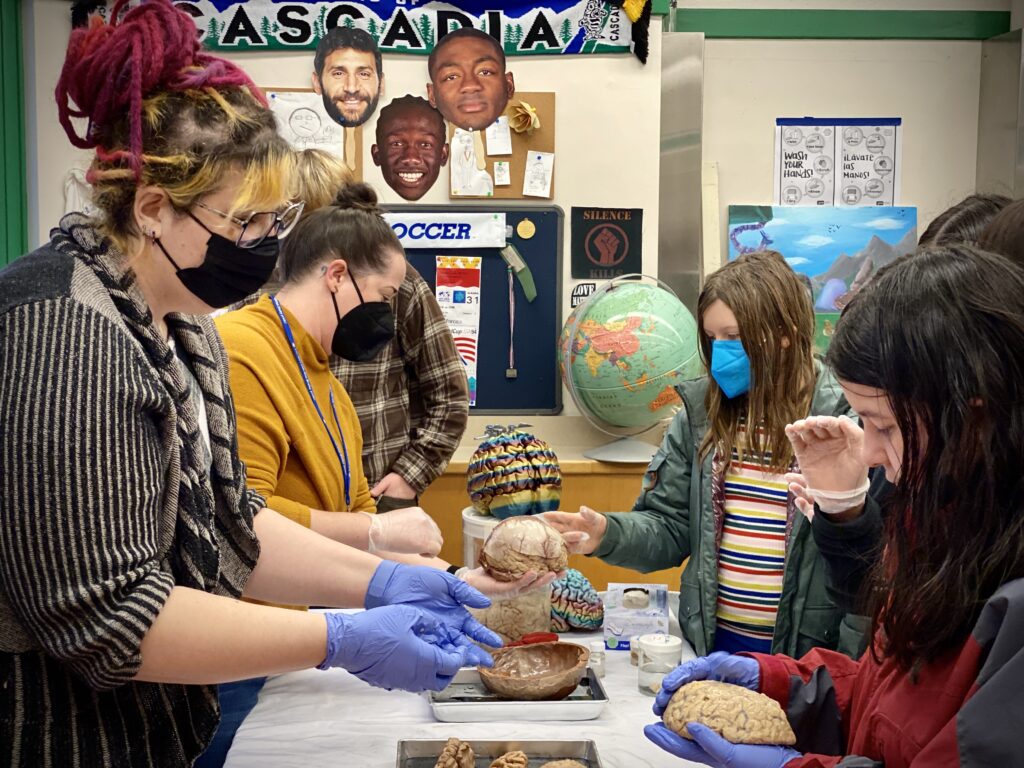
LEARN MORE: FAQ: Human Microbiome (NIH)
The microbiome should be diverse, and in cultures where people eat diverse diets, including lots of fermented foods, they are even more diverse, and people tend to live longer and healthier lives. Americans sometimes have the least diverse microbiomes, partly because we seem to love overprescribing antibiotics, which kill off whole communities!
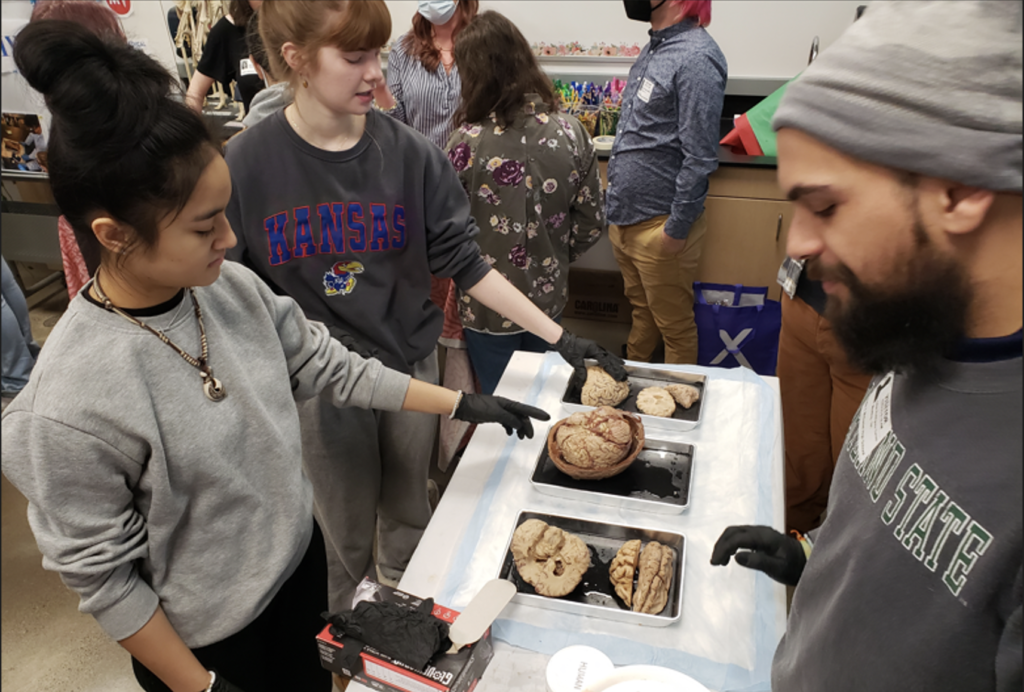
LEARN MORE: Impact of antibiotics on the human microbiome and consequences for host health
LEARN MORE: Dietary effects on human gut microbiome diversity
Leodis V. McDaniel High School
This month I joined my fellow undergraduates from Portland State University, including Julian Rodriguez, Asha Powell-Stormberg, Bradley Marxmiller, Allonte Barakat, Josie Borden and Brin Rey, along with Angela Hendrix from Northwest Noggin and Denesa Lockwood from OHSU. We had a wonderful time talking about the gut microbiome, brains and neurons with students in Portland Public Schools!

Northwest Noggin Art Coordinator Jeff Leake showed us how to make an enteroendocrine cell, a specialized hormone-secreting cell from the enteric nervous system.
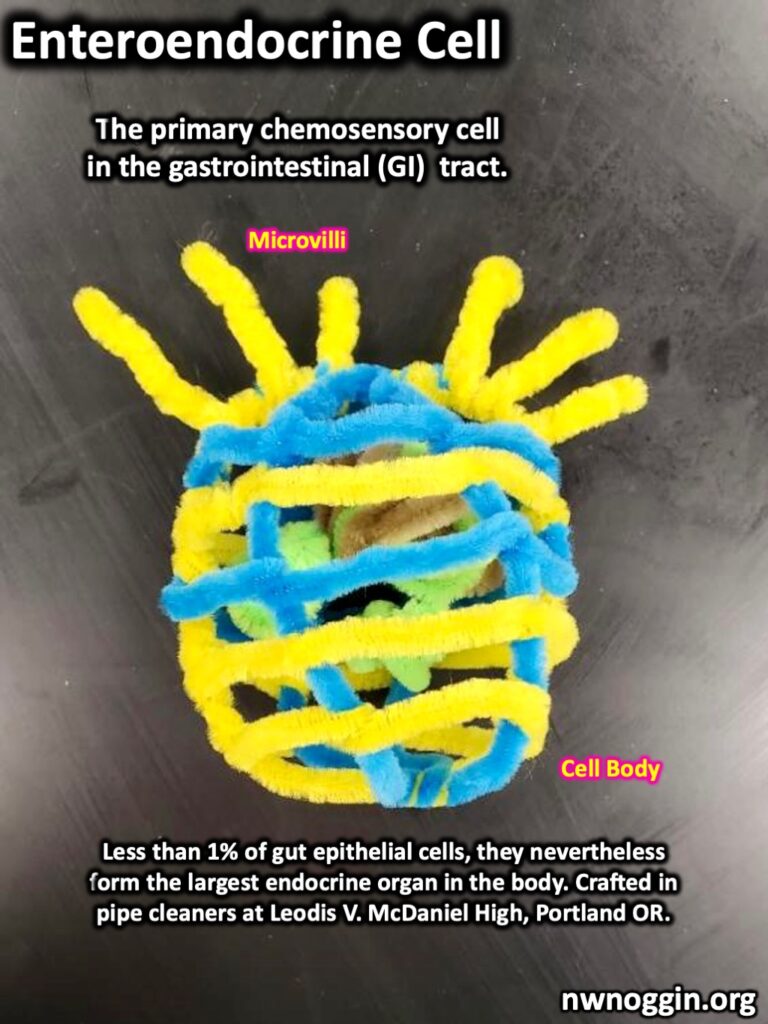
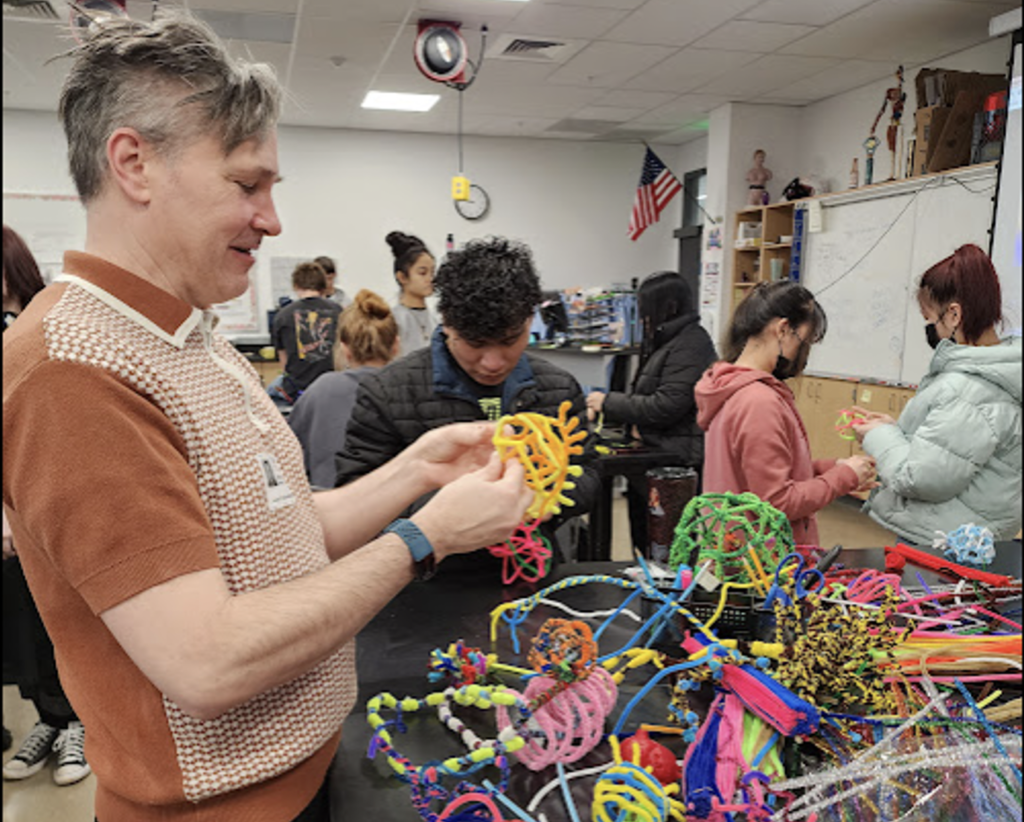
LEARN MORE: Function and mechanisms of enteroendocrine cells and gut hormones in metabolism
Students at Leodis V. McDaniel High School are working on a fascinating project wherein they change something in their diet to see how it affects their bodies and minds!
We talked about what types of foods might be best to add or remove. We also discussed how our Western diets, which include fast food, processed foods, and sugar are lacking in a lot of important fiber and nutrients.
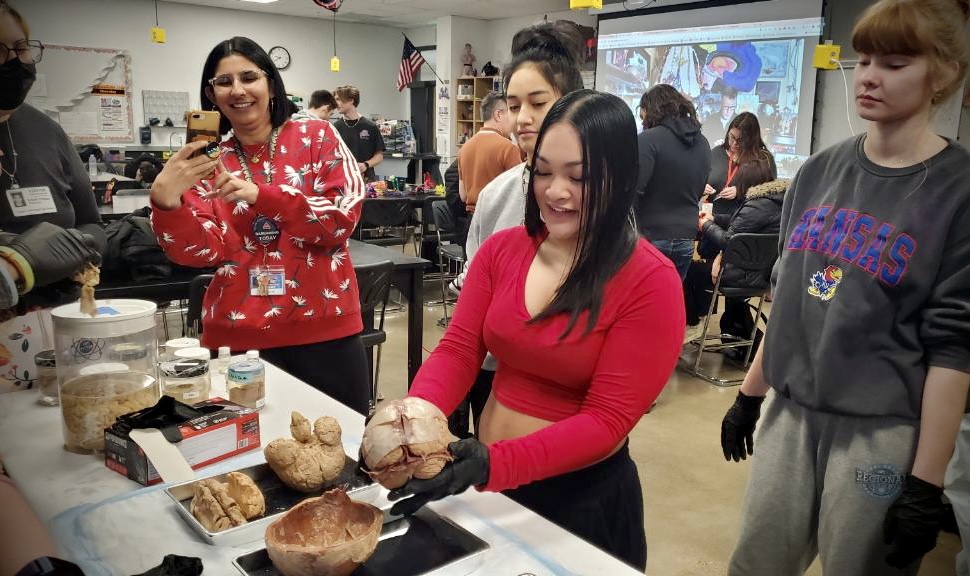
“Collectively, these data suggest a single fast food meal is sufficient to reshape the gut microbial community in mice, yielding a unique signature of food-derived microbial metabolites.”
— Lucas J. Osborn et al, Immunometabolism (2021)
We also dissected a fetal pig!
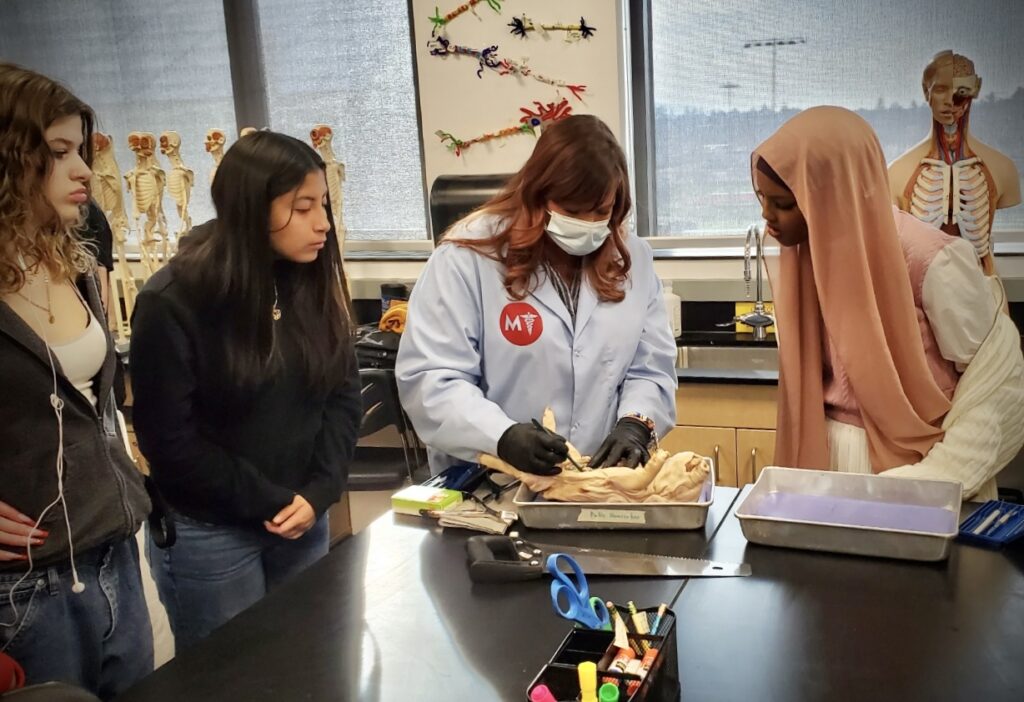

Students have great questions!
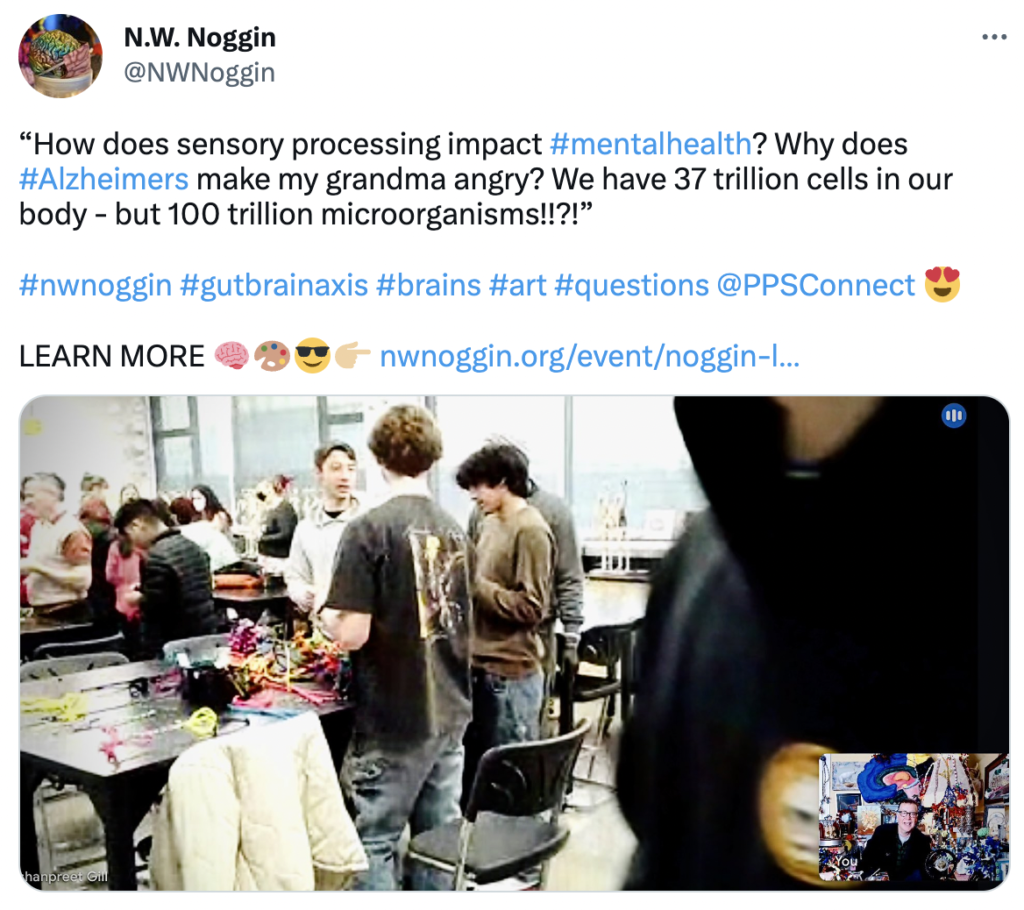
We also talked about the process of moving from high school to college.
What do you do as a high schooler to make yourself a more strong candidate for college/medical school?

LEARN MORE: Exploring the Unique Transition From Home, School or College Into University
LEARN MORE: Relative Education and the Advantage of a College Degree
LEARN MORE: Pathways to college and STEM careers: Enhancing the high school experience
So what’s my gut got to do with my brain?
The Gut-Brain Axis (GBA) refers to the connection between our central nervous system, including our brain and spinal cord and its communication bidirectionally with our autonomic and enteric nervous systems. Ever gotten a tummy ache from feeling stressed? Yep, that’s the GBA!
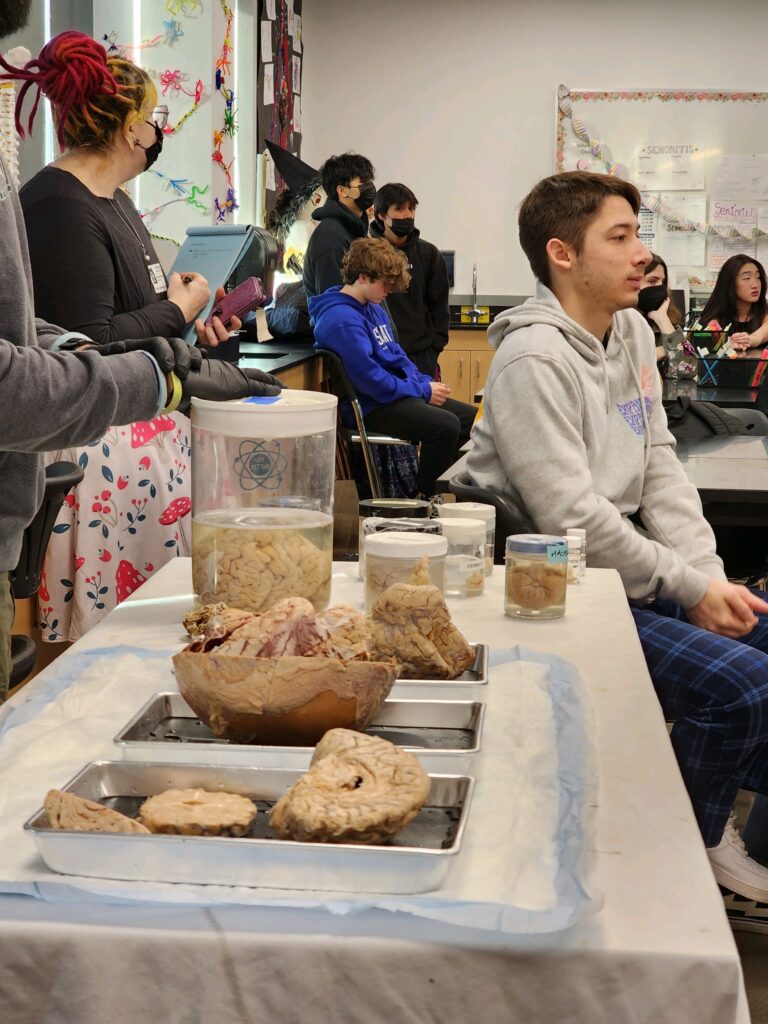
LEARN MORE: Watch Dr. Ruairi Robertson talk about the Gut-Brain Axis
LEARN MORE: The Gut Microbiome and the Brain
LEARN MORE: The gut-brain axis: interactions between enteric microbiota, central and enteric nervous systems
More GREAT Questions!
Does diet affect ADHD?
Most studies are inconclusive on this question. However, there is some research reporting success in alleviating physical complaints of those with ADHD, including gastrointestinal issues, obesity, and sleep disruptions when eating a Few-Foods Diet: foods with minimal allergen association including quinoa, lamb, and certain fruits and vegetables.
LEARN MORE: Physical Complaints Decrease after Following a Few-Foods Diet in Children with ADHD
LEARN MORE: Restriction and Elimination Diets in ADHD Treatment
Why does coffee affect me differently in morning and night when I have ADHD?
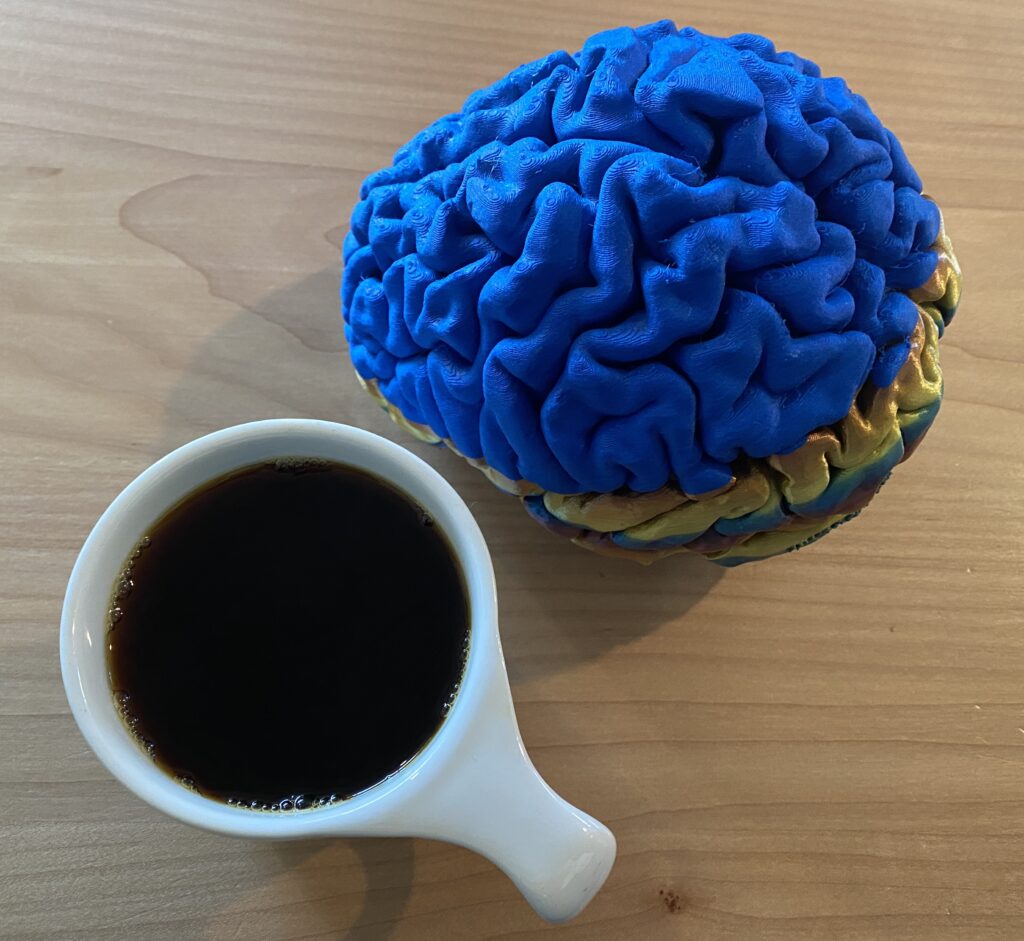
The circadian rhythm of a teen generally causes them to begin their sleep cycles after midnight, placing them at greater risk for sleep deprivation, especially if school starts early. Teens with ADHD are even more at risk as studies show poor sleep during school nights due to more difficulties with homework, and more screen time. ADHD medications often wear off in the afternoon, increasing the chance of choosing caffeine for an evening boost to get that homework done, further derailing sleep cycles.
LEARN MORE: Caffeine Use and Associations With Sleep in Adolescents With and Without ADHD
LEARN MORE: Adolescent Changes in the Homeostatic and Circadian Regulation of Sleep
Pre- and Probiotics are important for our mental health!
Diversity is often key! Just like you, every body, every gut, is unique.
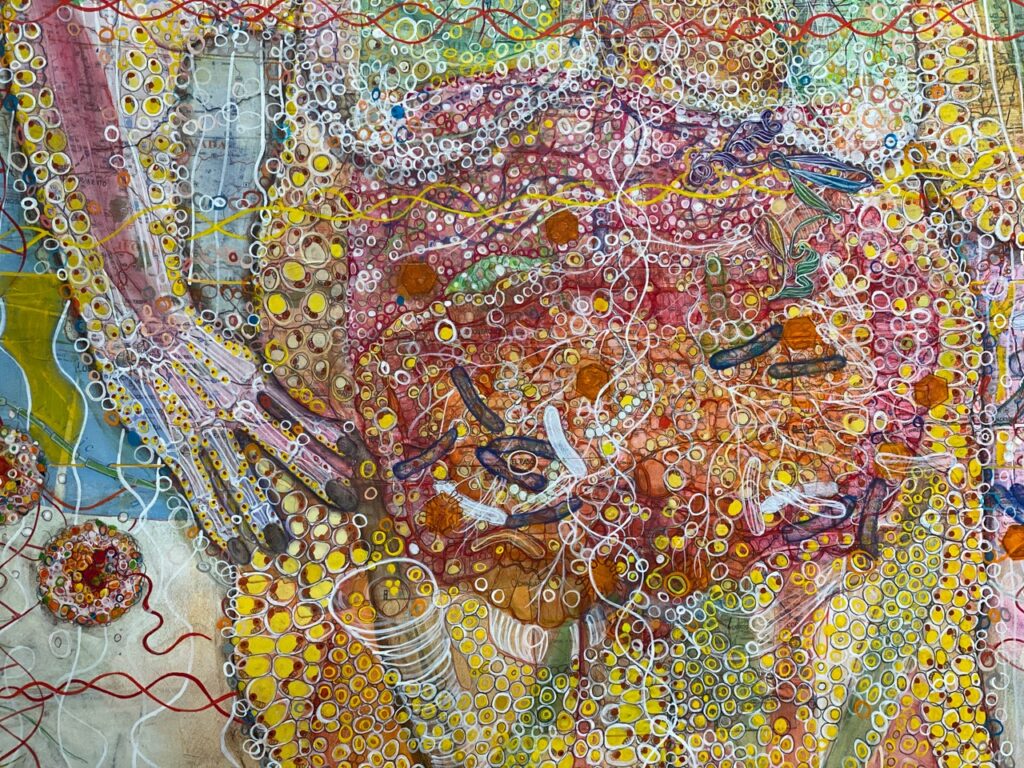
What are Prebiotics?
Prebiotics are the nutrients we feed our gut!
Beneficial fungi, bacteria, yeast, and other microbes in our microbiota seem to prefer foods high in fiber and complex carbohydrates. More research is needed, but so far it appears that eating fermented foods like kefir, kombucha, and kimchi causes certain microorganisms to proliferate which are beneficial to our health.
LEARN MORE: Fermented Foods, Health and the Gut Microbiome
LEARN MORE: Eating Fermented: Health Benefits of LAB-Fermented Foods
LEARN MORE: Health benefits of fermented foods: microbiota and beyond
LEARN MORE: The Microbiome and Neurologic Disease: Past and Future of a 2-Way Interaction
What are Probiotics?
Probiotics are the naturally occurring live bacteria and yeast that reside in your gut.
These organisms include bifidobacterium longum 174, which works to decrease cortisol, our stress hormone and lactobacillus plantarum PS128, which has been shown to reduce perceived stress, anxiety, and depression. Together, bifidobacterium longum and lactobacillus helveticus have been shown to decrease symptoms of major depressive disorder, while bacillus and serratia increase dopamine production, and are linked to positive influence on our motivation.
LEARN MORE: The Potential Impact of Selected Bacterial Strains on the Stress Response
LEARN MORE: Psychobiotics: A Novel Class of Psychotropic
LEARN MORE: The Role of Nutrition in the Gut-Brain Axis
How would giving up fast food affect my microbiome?
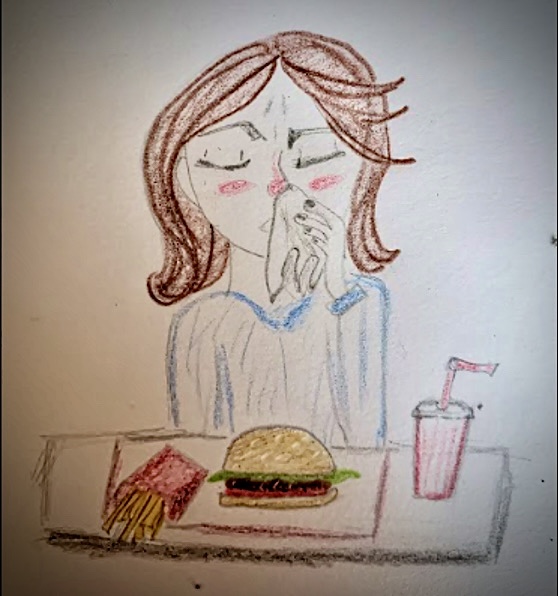
Just one trip to the drive-thru burger joint up the street can cause drastic changes in the microbiome! Mice who were given a syringe of fast-food showed a reformation of gut microbes and altered gene expression in the liver in just four hours!
“Collectively, these data suggest a single fast food meal is sufficient to reshape the gut microbial community in mice, yielding a unique signature of food-derived microbial metabolites. Future studies are in progress to determine the contribution of select metabolites to cardiometabolic disease progression and the translational relevance of these animal studies.”
— Lucas Osborn et al (2021)
Our American diet is often high in refined sugars, salt, saturated and trans-fats thanks largely to fast-food and pre-packaged foods and the sauces they come in and with. Diets like this are linked with higher inflammation, obesity and poor immune system function.
LEARN MORE: Fast food fever: reviewing the impacts of the Western diet on immunity
Diets rich in fermented foods show an increase in microbiome diversity and a decrease in inflammation and high-fiber foods have been linked to increased functioning of the microbiota and a more robust immune system.
LEARN MORE: Gut-microbiota-targeted diets modulate human immune status
“Analysis revealed an association between less anxiety and more fruits and vegetables, omega-3 fatty acids, ‘healthy’ dietary patterns, caloric restriction, breakfast consumption, ketogenic diet, broad-spectrum micronutrient supplementation, zinc, magnesium and selenium, probiotics, and a range of phytochemicals. Analysis revealed an association between higher levels of anxiety and high-fat diet, inadequate tryptophan and dietary protein, high intake of sugar and refined carbohydrates, and ‘unhealthy’ dietary patterns.”
— Monique Aucoin et al (2021)
LEARN MORE: Diet and Anxiety: A Scoping Review
LEARN MORE: Influence of Foods and Nutrition on the Gut Microbiome and Implications for Intestinal Health
Fix the worm bin 🙂
So giving up fast food and eating instead to support more beneficial gut organisms in your inner worm bin might be an excellent way to improve immune function, decrease symptoms of anxiety and depression and encourage a more effective and efficient microbiome.
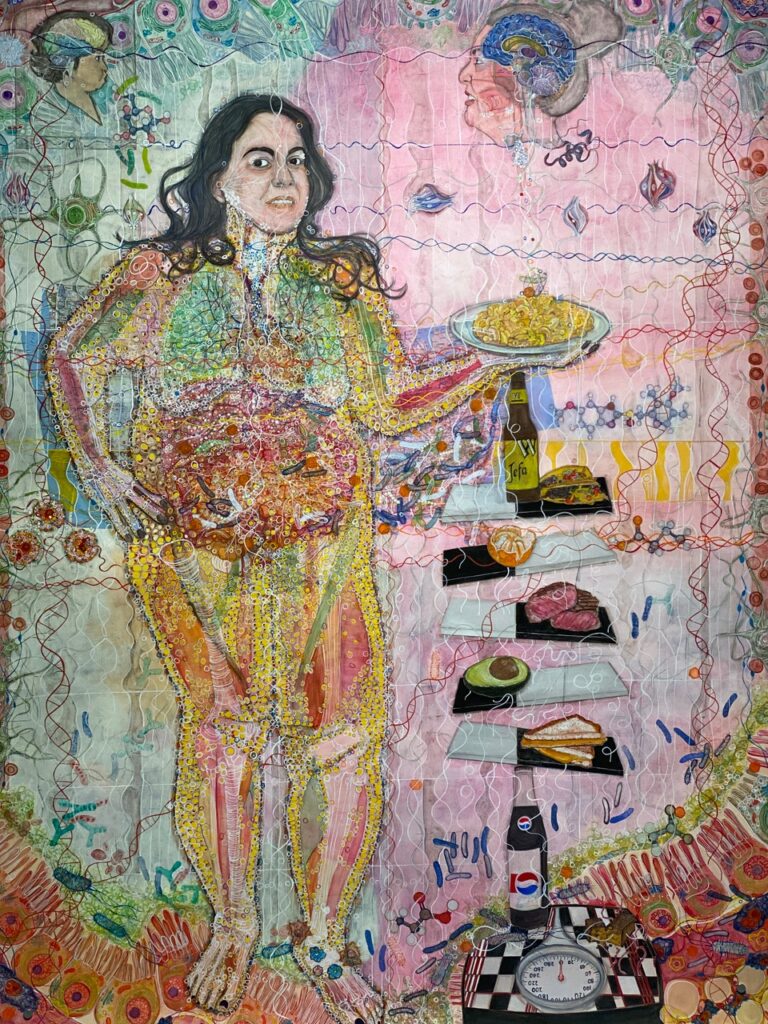

LEARN MORE: Monica Aissa Martinez
Thanks for having us, Leodis V. McDaniel!
